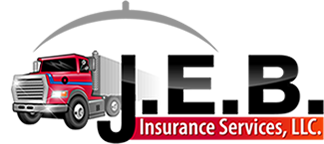The types of loads that commercial truckers haul can have a significant impact on insurance costs. Insurance companies take into account the risks associated with different kinds of cargo when determining premiums. From general freight to hazardous materials, each load type comes with its own set of risks and insurance considerations. Truckers carrying higher-risk loads will generally pay more for insurance coverage. Whether you’re an owner-operator or a commercial trucking company, understanding these costs is crucial for managing your bottom line.
Oversized Loads
Oversized loads that exceed weight, height, width, or length regulations for standard vehicles boost insurance costs for truckers. Examples include heavy machinery, construction equipment, manufactured homes, and structural beams or poles.
- Liability coverage for oversized loads can be two or three times higher than standard freight hauling. More things can be damaged if an oversized load is involved in an accident.
- Obtaining the required special permits and using mandated escorts adds permitting fees and labor costs for each oversized load trip.
- Route planning, specialized equipment, and training needed to transport oversized loads properly also add operating costs for truckers that influence premiums.
- Some cargoes like mobile homes and construction equipment have a higher theft risk that may raise insurance rates.
Refrigerated Freight
Also known as “reefer freight,” this includes any goods that need to be kept at a specific temperature during transport. Some examples are food items like fruits, vegetables, dairy products, and meats. Hauling perishable loads under temperature-controlled conditions is considered moderately high-risk by insurers.
- A refrigerated trailer breakdown could ruin a high-value refrigerated load, so cargo insurance rates are increased.
- Technical malfunctions that might cause loss of refrigeration also boost premiums to account for spoilage liability.
- Food safety regulations can hold haulers liable if proper temperatures aren’t maintained during shipping.
- Refrigerated freight requires maintenance and insurance for costly cooling equipment and systems.
Standard and Low-Risk Freight
Not all loads have increased risks. Standard sealed dry goods like packaged foods, furniture, clothing, and other retail consumer products represent minimal risk for truckers.
- Basic freight in box trailers has lower liability and damage exposure so insurance rates are reduced.
- Bulk commodities like grain, gravel, and liquids transported in tanker trucks are inexpensive to insure.
- Low-risk shipments may qualify truckers for policy discounts to save on premiums. Rating factors based on cargo type and weight are used by insurers to set rates.
Hazardous Materials Loads
This load type includes any materials that are deemed hazardous by the Department of Transportation (DOT). Truckers hauling these volatile cargos have a greater chance of being involved in a serious accident that results in injuries, property damage, environmental contamination, etc.
- Insurance premiums for hauling hazardous loads can be exponentially higher compared to standard freight. Coverage may be difficult to obtain from regular auto insurers. Specialized high-risk policies from surplus lines carriers are often needed.
- Legally, trucks carrying hazardous materials (hazmat) are required to have insurance liability ranging from $1 million to $5 million. This range depends on the class of hazardous materials being transported.
- Hazmat loads require special driver training certification. Lack of proper credentials can negate coverage following an accident.
- Standard hazmat cargoes like fuel, batteries, paint, and compressed gases can still increase a trucker’s insurance rates. The risks depend on factors like packaging, quantity transported, and exposure during the loading and unloading phases.
Understanding the type of load you’re carrying is so critical because it has a direct impact on your insurance costs. Different load types will always present different levels of risk—which insurance companies take into account when determining your premiums.
At J.E.B. Insurance Services, LLC, we understand the unique needs of truckers and owner-operators. Whether commercial truck insurance, owner-operator insurance, bobtail insurance, or rig insurance, we’ve got you covered in Florida, Georgia, Texas, Tennessee, North Carolina, South Carolina, Iowa, Nebraska & Illinois. Contact us to get a quote or learn more about our policies.


